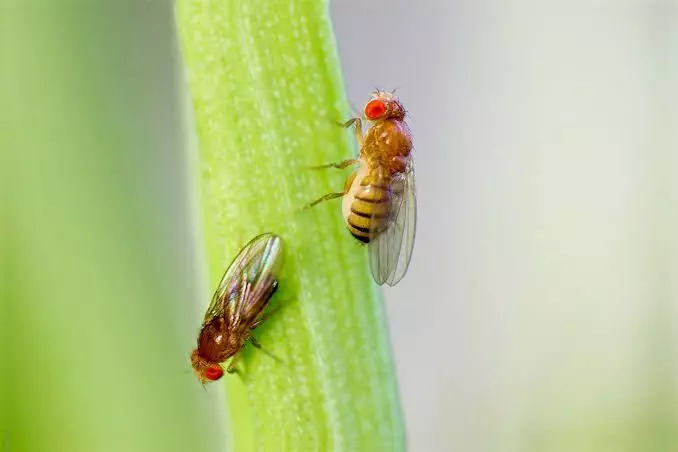CCMB Hyderabad scientists genetically modify fruit flies to find cure for deadly brain disease
The genes responsible for the condition in fruit flies have counterparts in humans, and mutations in these genes are known to cause microcephaly
By Anoushka Caroline Williams
Representational Image
Hyderabad: In a quest to unravel the enigma of human brain development and seek potential treatments, researchers in Hyderabad have turned to an unexpected ally - the tiny fruit fly.
By genetically modifying fruit flies to develop small brains, mirroring the condition known as microcephaly in humans, scientists are on the brink of discovery that could redefine how we approach neurodevelopmental disorders.
The key lies in recognizing the molecular similarities between fruit fly brains and our own.
Microcephaly, a rare but devastating condition, arises from the underdevelopment of the brain during pregnancy. Once a child is born with this condition, there are no standardized treatments available, leaving them to grapple with lifelong challenges in physical and mental development.
Enter the scientists from the Centre for Cellular and Molecular Biology (CCMB), Hyderabad. Led by Aishwarya Arun, a neurodevelopmental biology specialist in Dr. Sonal Nagarkar Jaisewal's laboratory, they embarked on a unique research journey using genetically mutated fruit flies as their subjects.
The genes responsible for the condition in fruit flies have counterparts in humans, and mutations in these genes are known to cause microcephaly. Some of these mutations affect the size of neural stem cells, resulting in abnormal cell division or even the premature death of these essential cells.
This isn't a localized effort; researchers worldwide are increasingly turning to fruit flies as model organisms to understand and develop treatments for intellectual disabilities caused by insufficient brain development in humans. It's a testament to the fruit fly's potential as a bridge between the microscopic world of genetics and the intricate web of human brain development.
Dr. Vikram Sharma, a Hyderabad Neurologist expressed the significance of this research, saying, "The behavior of fruit flies with small brains offers a promising model system. This can pave the way for testing potential drugs to treat brain-related diseases in humans, a field that has been challenging to navigate."
Recent studies and peer-reviewed research papers have highlighted striking similarities in how the brain regulates behavior in both flies and humans. Remarkably, fruit flies possess nearly 100,000 neurons (compared to billions in the human brain), creating an ideal environment for researchers to delve deeper into understanding the intricate workings of the human brain.
Dr. Ajay Reddy, Neurologist at Apollo Hospitals, shared, "The fruit fly's brain, despite its small size, holds immense potential to reveal insights into our neurodevelopment. By employing this tiny creature, we are taking a giant step toward comprehending the complexities of human brain development and ultimately, discovering treatments for devastating conditions like microcephaly."
The synergy between geneticists, neurodevelopmental biologists, and the tiny fruit fly may hold the key to unlocking the mysteries of human brain development, providing hope for countless individuals affected by these intricate neurological conditions.